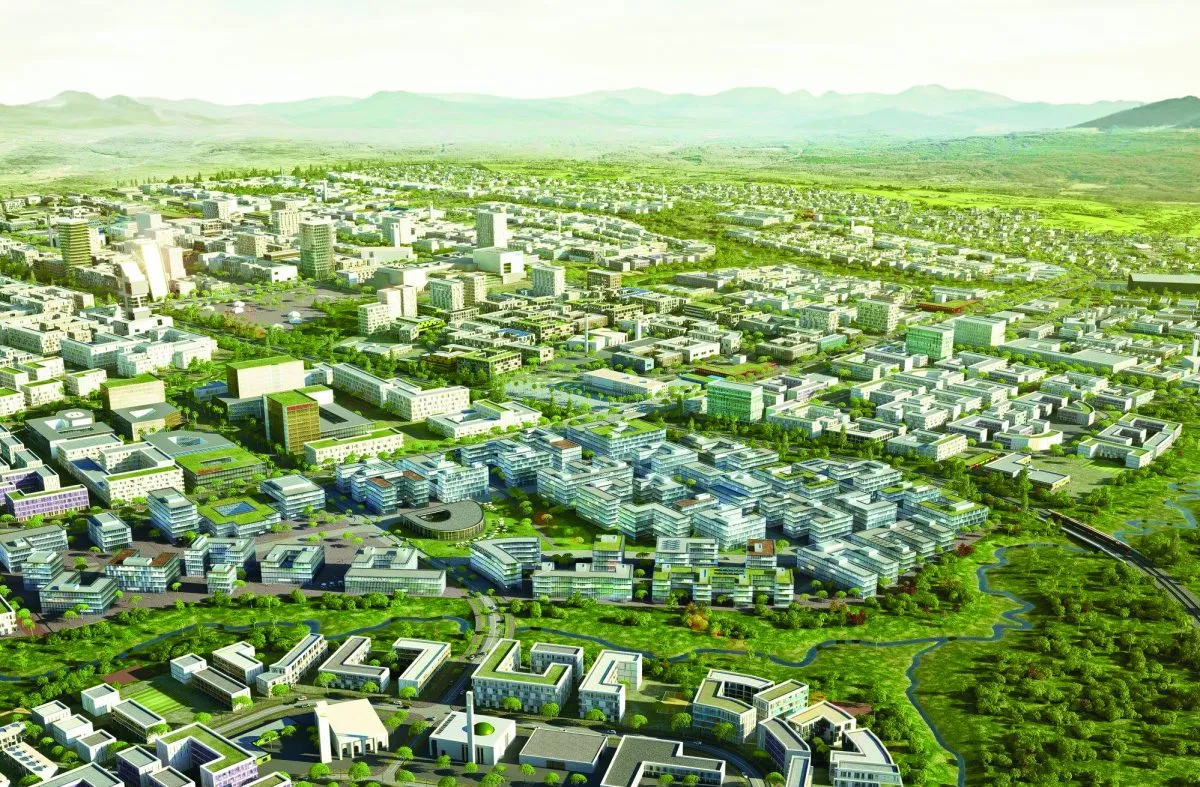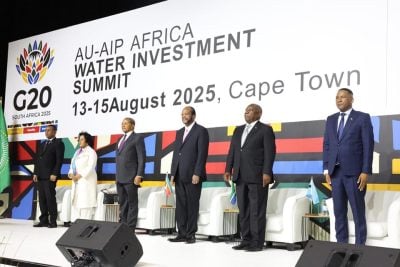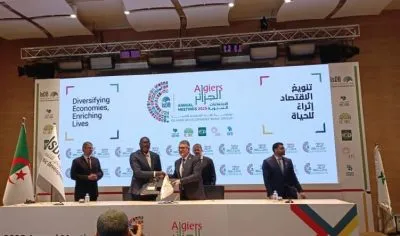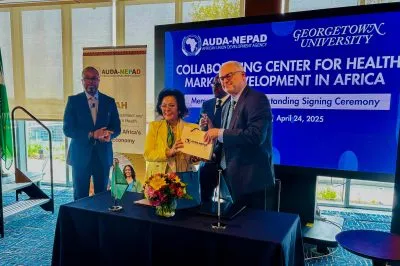The modernisation of Africa occurs apace across the continent, bringing health and wealth to its citizens. In its wake, positive rapid urbanisation is emerging as one of the driving forces behind improvement, with more than 450m new urban dwellers expected by 2040.
Nigeria accounts for about half of West Africa’s population with approximately 202m people and one of the largest populations of youth in the world. Nigeria is a multi-ethnic and culturally-diverse federation which consists of 36 autonomous states and the Federal Capital Territory.
According to the World Bank, well-being indicators are important tools in any development agenda. These indicators allow monitoring progress and provide the basis for evidence-based policy making. They are necessary to allocate budgets where well-being is lowest. They help identify which policy is best suited to alleviate the most pressing needs.
This is where Metro Capital Advisory Group (MCAG) comes in. Its vision is to design and offer innovative, cost-effective solutions through the creation and utilisation of bespoke practices in every facet of the services it provides.
MCAG is achieving this by building strong partnerships with its clients, suppliers and employees as it endeavours to successfully complete its pan-African ambitions. In the process, sustainability is key. The group is determined to sustain and bolster its well-deserved reputation for delivering timely and qualitative performance in accordance with international standards. It has the confidence to achieve that through the deployment of cutting edge technology combined with a talented and experienced world class workforce.
With an annual population growth rate of over 6%, Nigeria’s capital city Abuja proudly holds the position of the largest economy in the continent of Africa. As a new town, at its core is flexibility, and as such, one of MCAG’s visions is Abuja Midtown, which is set to be located within reach of the Central Business District and the city’s international airport. Under development now are links with the Abuja Light Rail system and the national rail network, as well as West Africa’s first district tramway. The city’s renewal is one of the core goals of MCAG’s endeavours.
As urbanisation changes the face of Africa’s biggest cities, a race to sustainability is taking place in Nigeria’s capital city, Abuja.
A core support pillar supporting this well-intentioned race is a sustainable city that offers lifestyle options and facilities attractive to an international audience.
There is an abundance of evidence supporting MCAG’s goals. For instance, a paper by the department of political science at Delta State University in Abraka, Nigeria argues that central to sustainable development is efficient and effective natural resource management that encapsulates economic, social and environmental components and requires societies to pursue growth paths that generate optimal flow of income built on the twin principles of justice and equity.
MCAG’s interests are aligned with Abuja’s goals of city-wide prosperity with a blend of interests including infrastructure, project finance, infrastructure development and advisory work.
The city will generate clean energy on-site, including solar. Its aims include:
- Use of intelligent solar street-lighting and traffic systems.
- Access to E-mobility and alternative modes of transportation.
- E-bikes, bicycle lanes and storage facilities to encourage use.
- Facilities to support use of Electric
Vehicles including charging stations. - Electric tramline.
- Sustainable and green architecture.
- Smart electrification, smart buildings and use of smart digital technologies.
- Design of infrastructure and landscape for effective water conservation and wastewater management.
- Use of bio-digesters to produce biogas for energy generation.
- Use of CCTV and surveillance systems.
- Data connectivity.
Faruk Saleh is MCAG’s CEO and he is founder of Abuja Midtown, a $10bn total project with $3bn MCAG contribution. The scheme will powerfully address the shortage of medical facilities in the county with the 36-acre medical city. Mr Saleh says: “I find it unacceptable that a country of 180m people with abundant natural resources and blessed with highly-skilled medical professionals has a poor medical system.”
In addition, there will be a five-star hotel attached to an 18-hole golf course, attracting the top-end international traveller. It will also include a shopping mall, a business campus and leadership centre, a polo field and acres of green space.
In addition there will be a diversified range of homes ranging from fully-detached luxury villas to stylish townhouses, condominiums and loft apartments. With high-level planning in mind these will be complemented by the building of schools within the development.
A serial entrepreneur with a passion for infrastructure and smart cities, Mr Saleh stresses that there is a significant upside to the provision of healthcare facilities on this scale which makes the project all the more worthwhile. “The value of smart cities is greatly impacted by access to quality healthcare,” he says. “We thus identified the inclusion of a medical city in Abuja midtown.”
He explains that MCAG will tap into the commitment of the country’s government to support domestic providers that are building local developments in a variety of sectors and industries. “On our part we will spare no effort in achieving this vision of creating a world-class destination for business, lifestyle and tourism,” he says, adding that his goal is to instigate a transformational impact in other industries in Nigeria that include healthcare, education, leisure and hospitality, and fashion and entertainment.
One in every five of the world’s out-of-school children is in Nigeria, according to the United Nations Children’s Fund (UNICEF). Even though primary education is officially free and compulsory, about 10.5m of the country’s children aged 5-14 years are not in school. Only 61 percent of 6-11 year-olds regularly attend primary school and only 35.6 percent of children aged 36-59 months receive early childhood education.
In fact, through MCAG and its subsidiaries Mr Saleh has overseen the completion of multiple private sector projects. He is currently spearheading the business and financial strategy of the 841-hectare Abuja Midtown that is set to become a world-class development. He serves on the boards of directors of several companies, where he brings to bear his extensive experience in project delivery.
Abuja Midtown for example is an African mega-project with transformational potential. Initially known as Gwagwa District, it is located within easy reach of the Central Business District and the international airport. Abuja Midtown will also be well linked with major transportation arteries – including several highways, the National Railway, the Abuja Light Rail system and, internally, the first district tramway in West Africa.
In fact MCAG has interests in infrastructure, smart cities , healthcare, energy, project finance and advisory. The Group has steadily progressed to larger and more ambitious projects – the development of model sustainable cities in an African context. MCAG was granted the development rights to Abuja Midtown.
Conceived to be a world-class destination for healthcare, business, lifestyle and hospitality, Abuja Midtown exemplifies the realisation of Nigeria’s vision for the 21st century – it lays the foundation for individuals, families, and businesses to realise their dreams.
Gwagwa Concession Limited is the Special Purpose Vehicle established by MCAG to deliver the primary engineering infrastructure of Abuja Midtown including a road network with bridges and culverts, a storm water drainage system, a foul sewer drainage network, a water supply system, an electricity network and street lighting, and telecommunication ducts.
MCAG has its roots in the construction of avant-garde, residential developments for the contemporary, high-income society in Nigeria. Today, the company has evolved and is transferring its fundamental expertise – the design and development of projects – to other sectors including urban infrastructure, healthcare, education, leisure and hospitality, and fashion and entertainment.
“Our vision at Metro Group is to bring our clients’ aspirations so close that their dreams come within arms’ reach. We aspire to create first-class modern cities and lifestyles, as well as offer exceptional services in every sector we operate in,” says Mr Saleh.
“Our newest and most ambitious project, Abuja Midtown, is set to be an iconic haven in the heart of Nigeria. The 841-hectare city will transform urban planning as we know it, across the continent. Abuja Midtown will exemplify perfect harmony between man and nature, as infrastructure, homes, healthcare and educational facilities will be built to complement nature’s design in the district,” he adds.
As MCAG travels along its path of growth and diversification across industries and international markets, it will continue to build upon its mission of designing and developing bespoke business solutions, in order to excel in our enduring ambition of becoming an iconic brand that continuously creates new records even as it shatters its previous ones – “ever, and always, in the service of our esteemed clients,” Mr Saleh stresses.
MCAG is working towards the same goal as President Tinubu, elected in May 2023, who has continuously pledged to turn around the economy and ensure security across the country. Civil society, the media and other civil groups have committed to sustain advocacy for reforms and actions towards better economic and social outcomes for citizens.
Nigeria is now at a crossroads and has a unique opportunity to return to a sustainable and inclusive growth path. Recognising the need to change course, the new administration has undertaken key reforms to restore macroeconomic stability.
“The sustained high urban population growth rate of Abuja created a gap in the provision of real estate and critical facilities with access to state of the art infrastructure. We identified this gap as an opportunity and identified Abuja Midtown and its features to serve the ever-increasing demands of the populace and to create a world-class destination for business, lifestyle and tourism,” Mr Saleh concludes.
Abuja Midtown will feature the following:
- District Infrastructure [Sustainable City]
- 1,500 Bed Medical City
- Business Campus and Centre of Excellence
- Financial Centre
- Five-Star Hotel and Convention Centre
- Shopping Mall
- Fashion Boulevard
- 18-Hole Golf Course with Resort Living
- Polo Resort
- Mixed-Use Areas
- Residential Areas (Green Sustainable City)
- Parks and Recreational Areas
- Sports Arena
- Independent Power Plant: Clean Energy
- Electric District Tramway
Want to continue reading? Subscribe today.
You've read all your free articles for this month! Subscribe now to enjoy full access to our content.
Digital Monthly
£8.00 / month
Receive full unlimited access to our articles, opinions, podcasts and more.
Digital Yearly
£70.00 / year
Our best value offer - save £26 and gain access to all of our digital content for an entire year!
 Sign in with Google
Sign in with Google 



